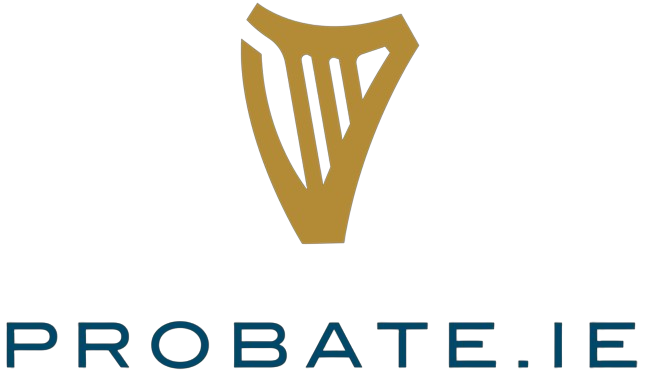TRUE OR FALSE – 10 ENDURING POWER OF ATTORNEY MYTHS EXPLAINED
A fear that a lot of people have, but don’t wish to speak about, is the fear of losing their mental capacity and what happens to their assets and personal care decisions once this happens and they cannot make decisions for themselves. This is where an Enduring Power of Attorney comes into play. It is a quick and simple way to prepare for a time in future where you may need the help of somebody else to make your decisions for you, the great thing about the Enduring Power of Attorney document is that you set out how you would like certain situations and decisions to be handled, meaning although, at the time you lose you mental capacity and cannot make your own decisions, you effectively still maintain control of your affairs.
Many people don’t understand fully how this document works and its benefits, this is why we, at Probate.ie, have put together this list of myths and have cleared up some of misconceptions and confirmed some of the facts surrounding and Enduring Power of Attorney, so that you can confidently set one up for yourself.
See also:
10 Making a Will Myths Explained
7 Irish Probate Myths Explained
1. ‘You don’t need an Enduring Power of Attorney if you have a Power of Attorney’
FALSE…
…there are important differences between and Enduring Power of Attorney and a Power of Attorney. A Power of Attorney is a legal document with which you grant a person the power to act on your behalf in relation to certain elements of a transaction and usually is time limited and limited to making specific decisions on your behalf. For example, giving somebody the power to sign a contract on your behalf, this Power of Attorney will cease to have effect once should you lose your mental capacity, it is the Enduring Power of Attorney that will take effect from that point onwards.
An Enduring Power of Attorney, on the other hand, is a document that gives somebody the power to make certain decisions for you and manage your affairs, usually financial and personal care affairs when you no longer have the mental capacity to manage those affairs yourself. It is in place for as long as you have lost your mental capacity to make your own decisions. It is for this reason that an Enduring Power of Attorney is an important document that should not be mistaken for a Power of Attorney document.
2. ‘The Enduring Power of Attorney has no effect until it is registered’
TRUE…
…this is true, the Enduring Power of Attorney it is a ‘just in case’ document and has no legal effect until registration. When a person loses their capacity, the document must be registered with the High Court to be effective. It is advisable to speak with a solicitor about how to do this should you need to activate an Enduring Power of Attorney.
3. ‘An Enduring Power of Attorney can cover financial and personal care decisions’
TRUE…
…this document can cover a person’s financial and personal care decisions. However, it is up to the person to choose what power they give the appointed person in their Enduring Power of Attorney. A person may choose to only deal with financial decision and or personal care decisions in an EPA.
4. ‘You can place restrictions on your attorneys on what they can and can’t do’
TRUE…
You can place restrictions on your attorney’s decision making abilities if you wish. However, you should ensure that these restrictions are not so restrictive that they frustrate the usefulness of the EPA.
5. ‘You get to choose who will be your attorney(s)’
TRUE…
…you can choose anybody you like to act as your attorney when making your Enduring Power of Attorney. Usually people would choose their spouse/partner/child/children or family member to look after their affairs, a person you can trust to take care of your affairs as you wish. You can also choose the level of control you give your chosen Attorneys.
6. ‘If you appoint more than one attorney they have to agree on all decisions’
FALSE…
…if you appoint more than one attorney to act on your behalf, you must make a decision about how they make decisions together. You must decide if they can act independently (referred to as acting jointly and severely) or if they have to make decisions together (known as acting jointly).
This is an important decision because it could affect the outcome of future decisions that are made on your behalf.
If you choose for your attorneys to act jointly and make their decisions together, if your attorneys can’t agree the decision won’t be made, if they can’t work together then the Enduring Power of Attorney falls apart. Also, if one of your attorneys dies or can no longer act then the Enduring Power of Attorney is no longer valid unless you have appointed substitute attorneys to step in in this case. Despite these limitations, jointly appointed attorneys create an important safeguard as consensus is required.
If they act independently from each other this can allow more flexibility, decisions can be made quickly and urgent decisions can be made straight away for you. Also, if one of the attorneys dies or cannot act any longer, you do not need to have deputy attorneys to step in, the Enduring Power of Attorney will continue as normal.
7. ‘An EPA can cover medical decisions’
FALSE…
…this is a straight forward answer, No, medical decisions are currently outside the scope of an EPA.
8. ‘You have to notify next of kin that you made an EPA’
TRUE…
…when you make an Enduring Power of Attorney, you are legally required to notify 2 people, other than the Attorneys you have chosen to take care of your affairs.
The law determines that your nearest next of kin along with another relative must be notified that you have made the document. At least one of the people notified must be:
- Spouse, if they are living with the donor and are not an attorney
- Child
- If the spouse is an attorney and there are no children, then to another relative (parent, sibling, grandchild, widow/er of a child or nephew or niece – in that order)
9. ‘You need a solicitor to complete an Enduring Power of Attorney’
TRUE…
…yes, you need the solicitor to certify that you have the mental capacity to make an Enduring Power of Attorney – this is a legal test that must be made before the document is finalised.
10. ‘In general, your attorney’s do not get paid for acting’
TRUE…
…in general, attorneys that act on the behalf of a person who has lost their mental capacity are not legally entitled to be paid for honouring the agreement. However, if you wish to provide remuneration in your Enduring Power of Attorney to your Attorneys you can state so in your document. However, an Attorney can recover any expenses they incur while acting on your behalf.
In cases where a person appoints a solicitor to be their Attorney, the solicitor may get paid for this and provision should be made in the Enduring Power of Attorney.

